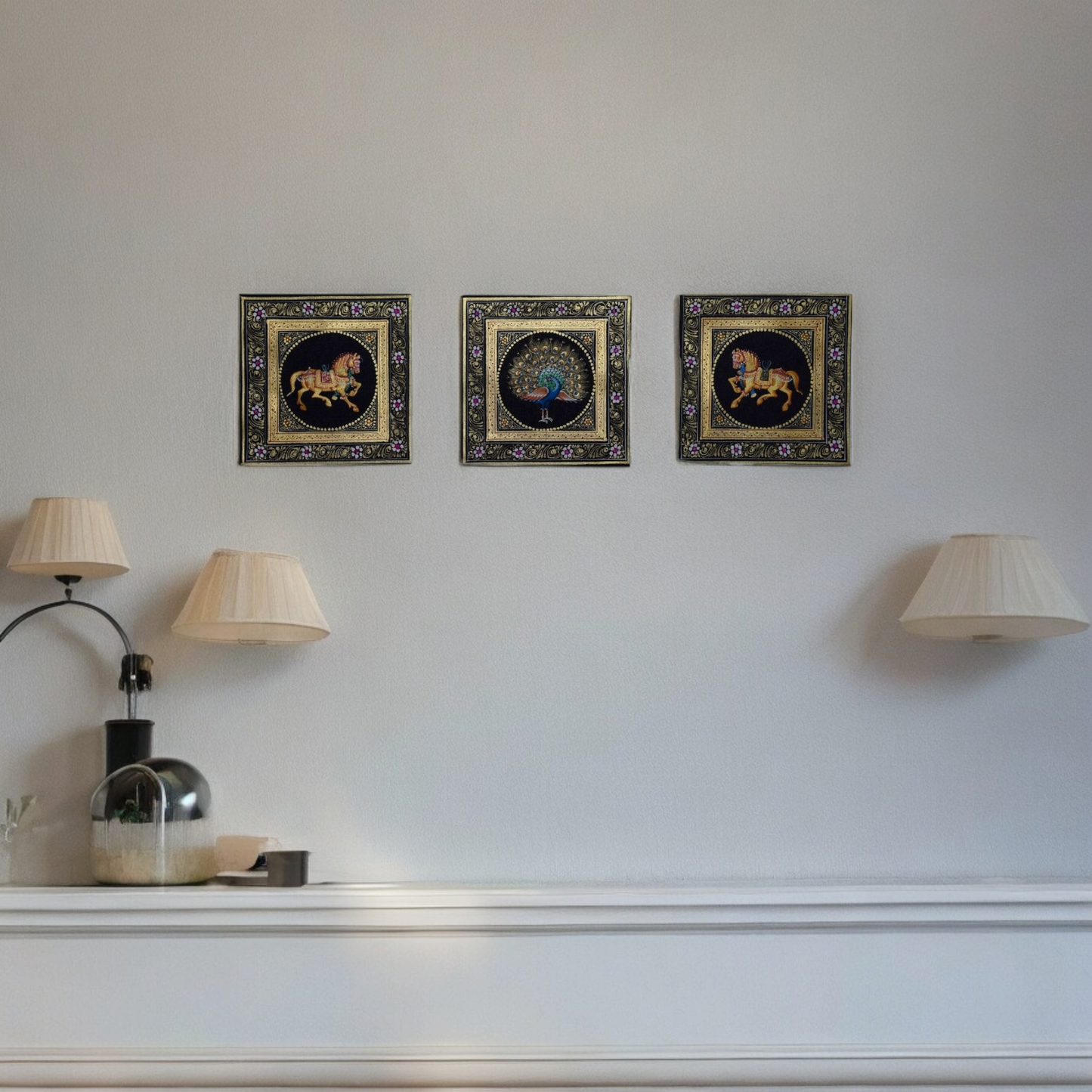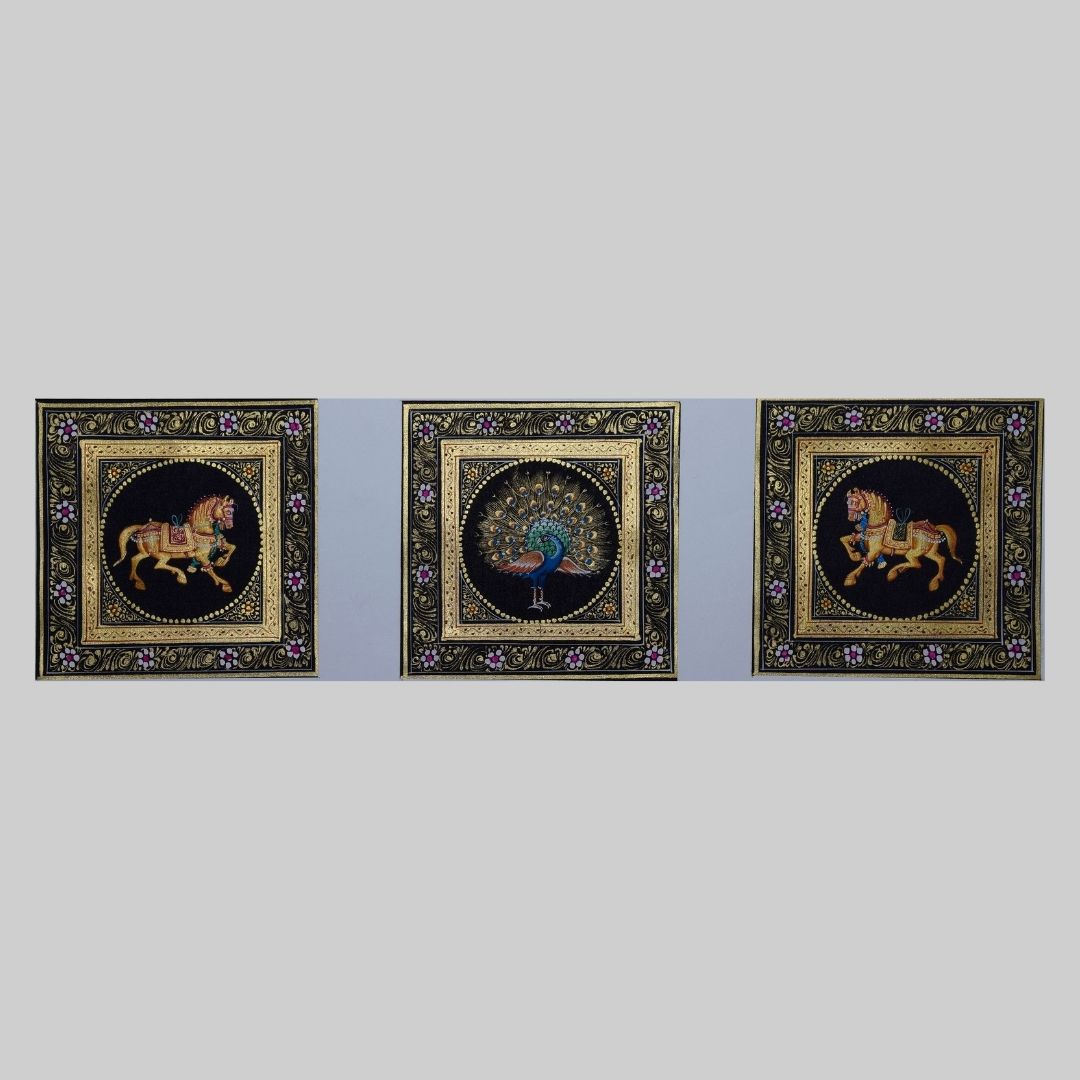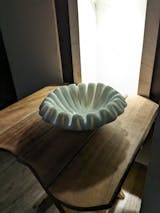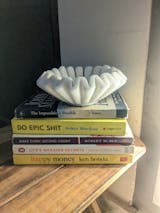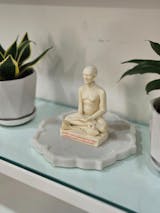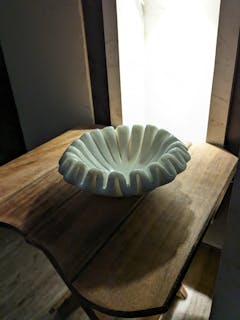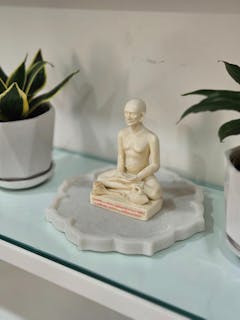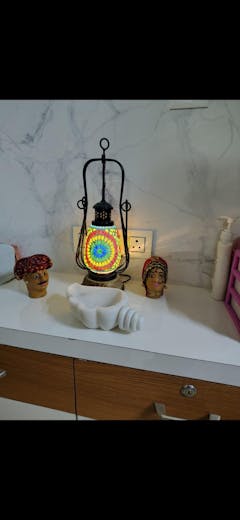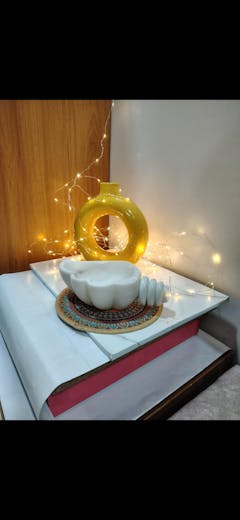Excellent product, highly recommend this marble basin.
A Peacock's Glamour & A Swift Horse in Miniature Painting - Complete Set 106
A Peacock's Glamour & A Swift Horse in Miniature Painting - Complete Set 106
SKU:
Couldn't load pickup availability
Share
Refined artist , with his deft hand and a keen eye for detail, unveils the resplendent world of Mughal miniature painting in "A Peacock's Glamour." In this breathtaking piece, he transports the viewers to an era when artistry was synonymous with intricate detailing and fine brushwork. The painting exudes the allure and grace of a peacock, a symbol deeply entwined with Indian culture and mythology.
This artistic gem is a magnificent fusion of the ancient Indian style dating back to the 6th and 7th centuries BCE and the opulent Safavid style of the Persian school. This union gave birth to the Mughal School of miniature painting, which flourished under the patronage of Mughal emperors like Akbar and Jahangir. The flame of tradition still burns brightly, with Rajasthan preserving the artistic legacy of Mughal miniature paintings. Prajapati's work is not merely a painting; it's a window into a rich and storied art form. The color theory, patterns, and motifs employed in this piece are a testament to the meticulous craftsmanship that defined the Mughal School.
Eminent artist "A Swift Horse" gallops through time, masterfully weaving together the intricate threads of Indian and Persian artistic heritage, giving life to the enchanting Mughal School of miniature painting. With deft brushwork and meticulous detailing, this artwork captures the wild horse's allure in a captivating dance of color and form. This mesmerizing fusion of styles harks back to the 6th and 7th centuries BCE, echoing the opulence and grandeur of the Mughal era, especially under the patronage of emperors like Akbar and Jahangir. In those illustrious times, miniature art was the primary vessel for historical archiving, bringing to life the visual splendor of several subjects, all painted with remarkable precision.
The legacy endures. Today, the traditional skills of miniature painting are passed down through generations, with Rajasthan preserving the art's essence. The colors, motifs, and patterns interwoven in this piece pay homage to an artistic tradition that refuses to fade into obscurity, just as the spirited horse in "A Swift Horse" continues to gallop through the annals of time, carrying the rich heritage of Mughal miniature art.
Care & Instruction
Care & Instruction
Care & Instructions:
- Keep away from direct sunlight
- Can be safely dusted using a clean, soft natural artists brush.
- Do not use moist dust cloths, stiff bristle brushes, or feather dusters to clean the painting.
- Avoid spraying any fresheners, polish etc directly onto the painting.
Description
Description
Shipping & Delivery Details
Shipping & Delivery Details
DELIVERY INFORMATION
SHIPPING TIME
- The product will be dispatched in 2-4 weeks.
RETURNS
- Made to order items cannot be returned or exchanged
- Returns accepted within 3 days of delivery in case of damaged goods
Disclaimer
Disclaimer
- Each artwork is hand-painted and unique, so colors and details may vary slightly from the images shown.
- Each painting is handmade by a house of skilled artists. No two pieces are identical, which only adds to its originality and allure.
